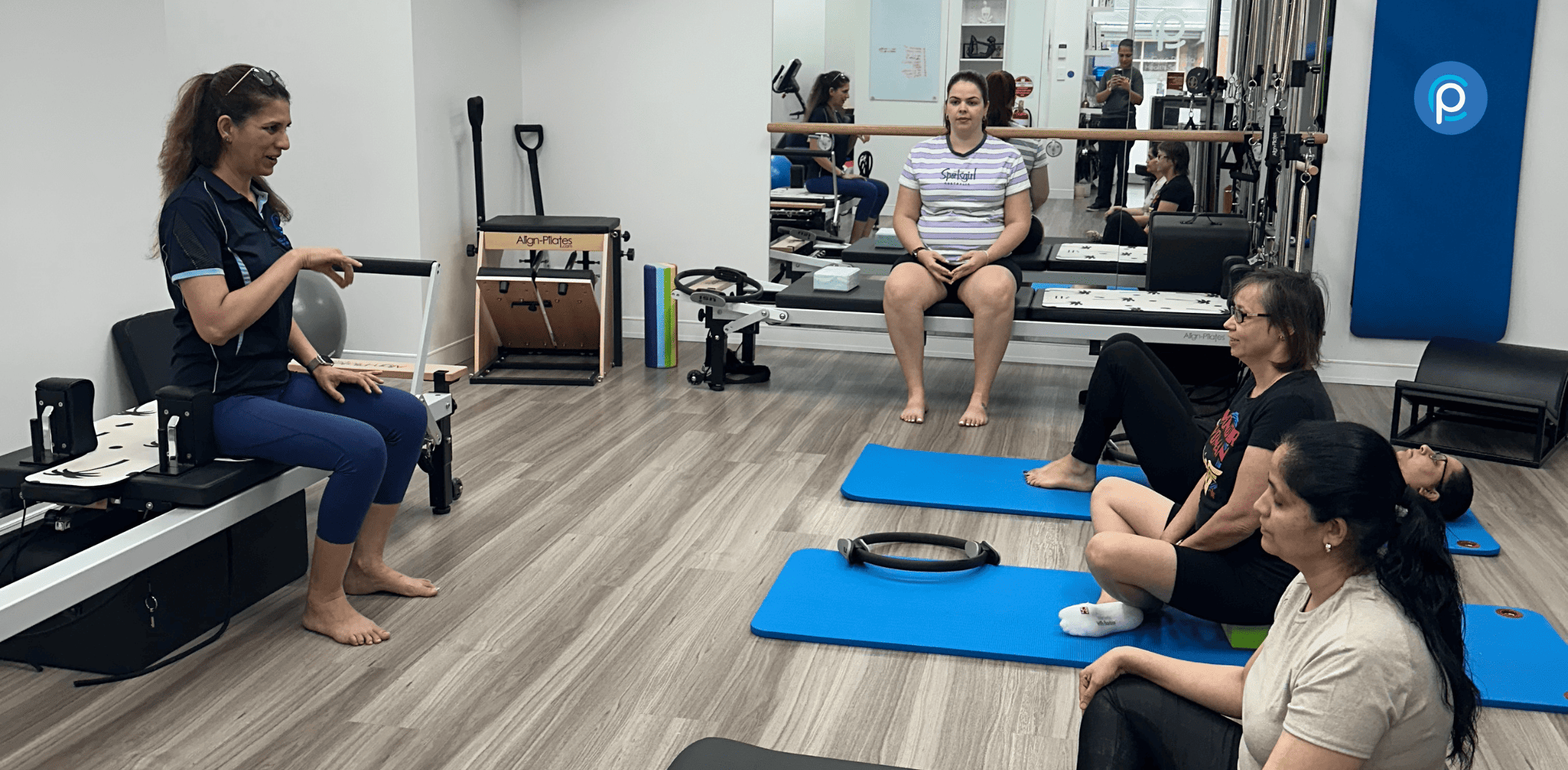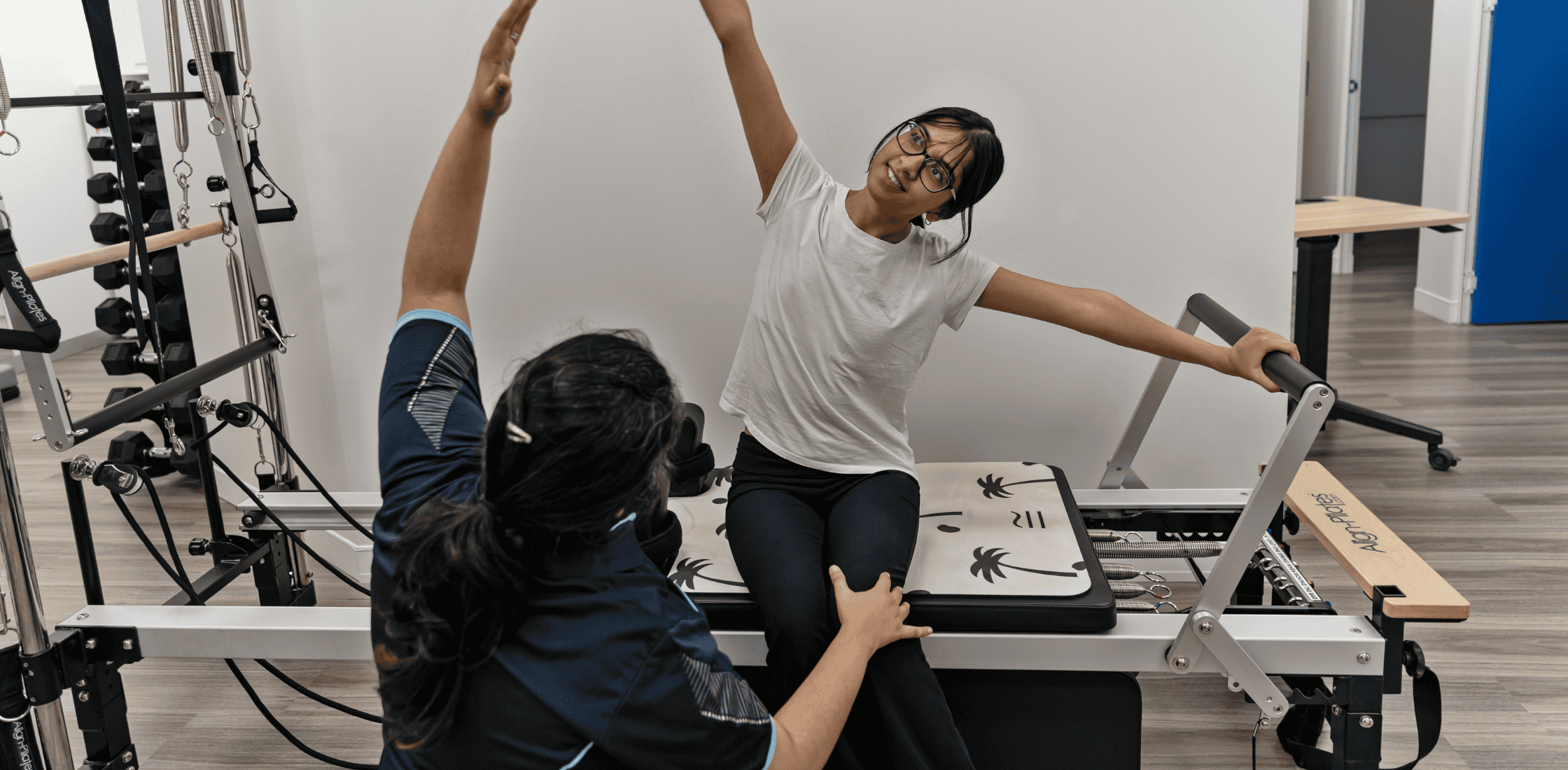Recently, I was approached by a friend about joining discounted trial Pilates group classes without any prior experience of exercising or doing Pilates.
She mentioned it was something she had been hearing so often, seeing so many ads on social media, and thought of starting the Pilates group classes for herself.
Knowing Pilates before joining the Pilates group classes is not a requirement, but it is essential to know your body before you actually jump into these group classes.
This conversation with her prompted me to consider the lack of clarity among many people about Pilates, its workings, and its proper integration into an exercise routine. Firstly and most importantly, it is crucial to understand that Pilates is beyond just the much-heard reformer-based classes.
Pilates is an excellent exercise that benefits the body and enhances mental well-being. It fosters a connection between the mind and body, improves focus, and builds strength and endurance.
While Pilates is often associated with core workouts, it also encompasses other pillars, such as the neck and shoulder and lower body alignment. Proper guidance is crucial when performing Pilates, especially for those with limited experience or who are not exercise enthusiasts.
In such cases, I strongly recommend that individuals with minimal experience and no prior Pilates knowledge start with one-on-one sessions for assessment.
This ensures their safety and allows a thorough evaluation of their medical history and readiness to progress to group classes.
During one-on-one sessions, instructors can assess the individual’s progress and determine whether they are ready to join a group or need further guidance on basic Pilates movements.
As mentioned earlier, Pilates is not just about targeting the core; it’s a comprehensive full-body and mind workout. It involves connecting the neck, shoulder blades, ribs, and pelvis, along with engaging the core.
Each layer of Pilates requires specific attention and skill development. Starting your exercise journey with a one-on-one assessment ideally gives you a deeper insight into what is happening with your body, what areas need to be focused on during the Pilates group classes, and how you can maximize on creating good health and overall well-being for yourself.
It involves teaching you about the mind-body connection, breathwork, and other techniques.
During the private one-on-one consultation session, the goal is to assess you and teach you exercises that are specific to your needs.
Clinical Pilates isn’t a one-size-fits-all model; it’s a tailored program that is planned with you during this one-on-one session and then implemented during the Pilates group classes to help you achieve your fitness goals. This approach ensures injury prevention during Pilates sessions.
Ideally, these one-on-one sessions are crucial to learn the basics and gradually build your personal training plan upon them.
Once you feel comfortable, you can transition to Pilates group classes, but finding the right group is key to ensuring you feel supported and at ease rather than overwhelmed by the pace or intensity of others around you.
If Pilates group class is your goal, connect with one of our expert physios to guide you through your personalized exercise plan.

















